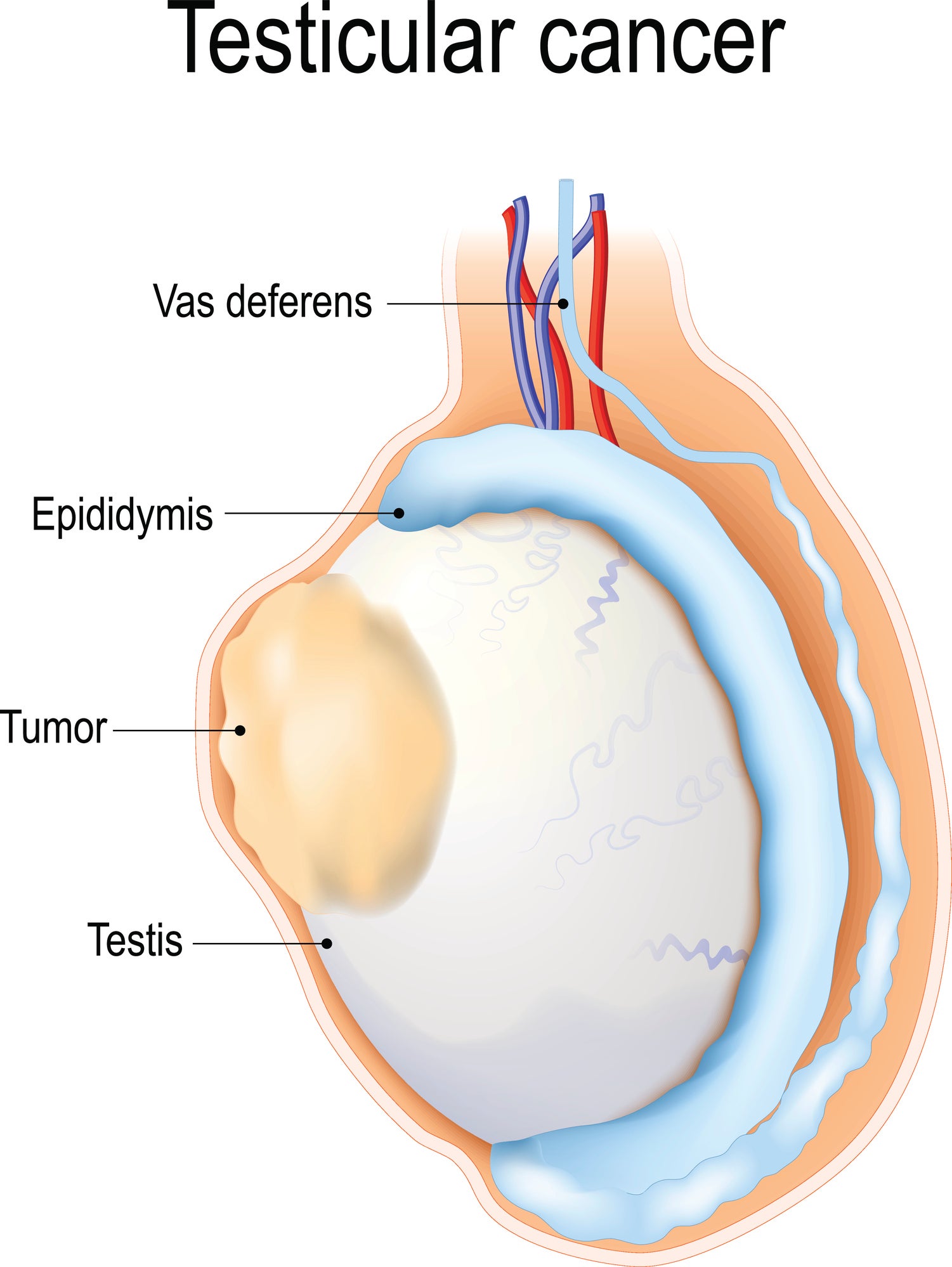-
How to Avoid Spoiling Your Kids

Parents playing with child.
They come into the world so little and sweet, and before you know it, your babies are turning into toddlers. Until now, it’s been pretty easy to manage them, but suddenly, they’re little people with minds of their own. You love them, you’d do anything for them, but how do you avoid spoiling them? We’ve got some tips to help you raise kids who are happy, secure, and definitely not spoiled.
- Set boundaries and stick to them. Being consistent is one of the most important parts of being a parent. Make sure the rules are clear, and use discipline strategies that work for your child. Remember, discipline needn’t be punitive. Try positive disciplinary practices like redirection and positive reinforcement. Expect your children to push your boundaries, it’s a normal part of child development, but resist the urge to cave when they do. It’s important to stick to your limits, or you could end up with a child who second guesses you at every turn. Teach your children that the rules are the rules, no means no, and there are consequences for bad behavior.
- Assign chores from an early age. Give your little ones age-appropriate chores, like putting away toys, setting the table, and putting plastic dinnerware in the sink. This will encourage your child to think about the needs of others, as well as instilling a sense of responsibility. Make it a rule that chores are done before fun; research indicates that children whose parents are strict about chores are better able to cope with frustration.
- Encourage good manners. Please and thank you should be some of your child’s first words, and saying thank you should become something your child does reflexively, without prompting. Good table manners, too, help a child become someone people want to be around. Teach your child to share, take turns, and respect the feelings of others, and not to be a sore loser or call names. Be a good example by being polite to the people you encounter in daily life, and teach your children how to write thank you notes to people who do nice things for them or give them gifts.
- Allow your little one to experience disappointment. Disappointment is a part of life. While it’s tempting to try to protect your child from the negative aspects of life, overprotecting can result in a spoiled child. Whether it’s a canceled playdate or not getting something he or she wants when you’re at the store, learning to face disappointment at an early age will serve your child well in the long run and help to develop coping skills.
- Foster compassion and a giving spirit. Make it your goal to raise a child who considers the needs of others and is compassionate and generous. Model this behavior by volunteering as a family, donating to charities, and letting your child see you being kind and giving to others. Children who put the needs of others first are less likely to be spoiled.
- Don’t give too many chances. We’ve all heard parents counting “2 ½ “, “2 ¾ “ before getting to three, and this is something to avoid if you don’t want spoiled kids. Failing to follow through on what you’ve said is going to happen, or dragging it out, can teach your children that they can manipulate you- and other people- to get what they want.
- Give kids the opportunity to work for what they want. Allow your child to make a case for the things he or she wants. If it’s watching a tv show, your child can explain the chores that have been done or offer to take a nap first. You can also let your children earn material things, like toys, through good behavior. To do this, set up a reward system to make your expectations clear.
- Don’t negotiate with terrorists… or toddlers. If your children think they can behave badly to get the things they want, they will do it. Don’t offer treats to squelch unpleasant behavior, or your child will expect every tantrum to end with a prize. Similarly, refrain from giving in to begging.
- Say yes whenever you can. If you’re always saying no, your children might begin to think you say no to everything, and this can lead to them thinking that bad behavior doesn’t matter, since they won’t get what they want anyway. Choose your battles, treat your child with kindness, and reward good behavior.
At the Center for Vasectomy Reversal, we love helping people grow their families. We pride ourselves on helping men improve their fertility through uncompromising, concierge-level patient care. Under the direction of Dr. Joshua Green, our team provides state-of-the-art treatment for men who need a reversal of their vasectomy or have other fertility concerns. To learn more, contact us through our website or call 941-894-6428.
-
Can Certain Medications Affect Your Sperm Health?

Man rethinking taking medication.
Often, infertility is assumed to be a woman’s problem. However, male infertility is also significant, and sperm quality can heavily impact the chances of conception. Many factors can affect male fertility, including excess weight, cigarette smoking, excessive drinking, and use of recreational drugs. While all of these factors are commonly known, what is less well known is that certain medication can interfere with male fertility.
How can medications affect a man’s fertility? Often, medication will decrease the production of sperm, but in some cases, medications will affect the function of the sperm itself. Decreased production leads to low sperm count, which means fewer sperm will be available to fertilize an egg. If a medication impacts the motility of the sperm, that means the sperm won’t move as efficiently and will have difficulty reaching the egg. Generally, once a man stops taking medication, it takes at least two or three months for his sperm to recover, since it takes that long for sperm to form and mature. With certain medications, however, it can take months or years for fertility to return to normal, and it might not return at all.
So, what types of medications have a negative impact on sperm? Over-the-counter medication does not usually cause an issue, as long as it’s taken correctly and in the proper dosage. However, it’s important to be cautious when you’re trying to conceive, so it’s wise to discuss any OTC medications with your doctor. Certain OTC medicines warrant particular caution:
- Non-steroidal anti-inflammatory drugs (NSAIDs) sometimes reduce fertility. According to a recent study, men taking 1,200 mg of ibuprofen daily can develop a hormonal condition that causes a problem, especially if the man is older. What was not made clear in the study is whether lower doses of ibuprofen can have the same effect. Additionally, while the effects are reversible when the medication is taken for short periods of time, it’s unclear whether they’re reversible if taken long-term.
- Natural or herbal remedies can cause problems for men trying to conceive. Because herbal remedies are not held to the same regulatory standards as medications, it’s better to stay away from them to protect fertility. Supplements that contain testosterone can be particularly problematic, so avoid anything that uses terms like “male enhancement,” “andro booster,” or “T-booster.”
There are prescription medications that can have a significant impact on fertility.
- Steroids and testosterone therapy can have a strong negative impact on sperm production. In fact, testosterone supplements will completely stop sperm production. Whether the man is taking anabolic steroids, herbal supplements with testosterone, or a prescription testosterone replacement from the doctor, the effect is the same. Testosterone blocks the body’s natural hormonal signals that cause the testicles to make sperm. The result is that the semen will either have a very low concentration of sperm or will have no sperm at all. This effect is reversible, but it takes a long time for the sperm to recover. In fact, it can take six to 12 months for sperm count to get back to normal.
- Chemotherapy can wipe out your sperm count. This is because chemo works by killing rapidly dividing cells, like cancer cells, but also, unfortunately, sperm cells. After cancer treatment, it’s common for men to have no sperm in the semen. However, natural fertility can return one to five years after the treatment is discontinued. If you’ve been through chemo, it’s best to wait at least two years before attempting to conceive. For some people, though, fertility never recovers. If you are about to start chemotherapy, talk to your doctor about freezing your sperm for later use.
- Blood pressure medications can decrease semen volume, sperm concentration, and sperm motility. These medications, especially calcium channel blockers, can also cause decreased libido and erectile dysfunction.
- Opioids can interfere with sexual performance and fertility. Long-term use, in particular, can disrupt the signals that control testosterone production. If you’ve only used opioids short-term, as for the treatment of a broken bone or when recovering from surgery, you may not need to worry.
- Antidepressants can cause a drop in libido and may negatively affect sperm production. Selective serotonin re-uptake inhibitors (SSRIs) are the most common medications used to treat depression and anxiety, and they can hinder your chances of conception. However, there are other medications your doctor or mental health provider can prescribe that won’t have the same impact.
- Other medications may be problematic if you’re trying to conceive. Antibiotics can interfere with testosterone and sperm production, especially an antifungal antibiotic called Ketoconazole. Biologics, used to treat autoimmune disorders, can reduce sperm count, and alpha-blockers, prescribed to treat the symptoms caused by an enlarged prostate, can inhibit ejaculation. 5-alpha-reductase inhibitors like Propecia® and Avodart®, used for hair loss and prostate enlargement treatment, can make it hard to conceive, but the effect goes away when you stop taking them. Anti-epilepsy medications, antiretrovirals, blood pressure medications, and some other medications can also cause fertility problems.
At the Center for Vasectomy Reversal, we are concerned with every aspect of men’s health, and we pride ourselves on helping men improve their fertility through uncompromising, concierge-level patient care. Under the direction of Dr. Joshua Green, our team provides state-of-the-art treatment for men who need a reversal of their vasectomy or have other fertility concerns. To learn more, contact us through our website or call 941-894-6428.
-
Can getting kicked in the testicles affect fertility?

It’s a joke in Hollywood movies and a staple of America’s Funniest Home Videos, but if it happens to you, you’re unlikely to find it funny. Getting kicked or hit in the testicles can hurt badly, and if it’s significant enough, it can lead to complications that include sexual dysfunction, urological problems, low testosterone, and even infertility. Let’s look at why testicles are so sensitive, and how to know if your injury is serious enough for concern.
The testicles are vulnerable to injury because they hang outside of the body. These two, small, egg-shaped organs are contained in the scrotum, and having them outside the body keeps them 2 degrees lower than the rest of the body, the ideal temperature for sperm production. While that’s great news for sperm production, it means there are no muscles or bones protecting the testicles from blunt force trauma or penetrating injuries. Blunt trauma, resulting from being kicked or struck by an object, makes up 85 percent of testicular injuries. Penetrating injuries, which happen when something like a knife or bullet pierces the skin, makes up the other 15 percent. Vehicular accidents, bicycle collisions, animal bites, and machinery accidents are all sources of testicular injury.
If you suffer an injury to your testicles, you may experience a contusion, which involves swelling, bleeding, or bruising, cause by damage to the blood vessels. There are also other, more serious types of injuries. Testicular torsion happens when the spermatic cord inside the testicle is twisted, and this leads to tissue death. A rupture or fracture is a tear in the testicle covering, while a degloving means the scrotum skin has been torn away from the testicles. Your testicle may be forced out of position, which is called a dislocation, or it could be detached from the body.
No matter what kind of injury your testicles sustain, it’s going to hurt intensely, and that pain will probably last at least an hour. That’s because the genital area is packed full of nerve endings, so it is much more sensitive than areas of the body where the nerves are spread out more. You will probably feel referred pain in your stomach, because there are shared nerves and tissues between the abdomen and scrotum. To get over the pain, you may need to lie down, apply a cold compress, and take an over the counter pain reliever. Wearing supportive underwear can help because it limits movement.
If the pain lasts more than an hour, you should probably head to the emergency room. Bruising, fever, persistent nausea, difficulty urinating, or blood in the urine are also symptoms that necessitate emergency medical care. These symptoms could mean that enough damage has happened to impact your fertility. Testicular torsion and rupture are both conditions that require surgery to repair them, and if you get medical treatment quickly enough, normal function can be restored.
If the damage is not repaired in time, or there is damage to the epididymis that causes testicular shrinkage, it can impact your fertility. There is also a type of infection which may go undetected until days after the injury. Left untreated, it can cause the epididymis to be unable to store and carry sperm. Scar tissue from an injury may cause a reduction in sperm production. In other cases, a testicular injury can affect hormone production, making it difficult to maintain an erection or conceive a child. It’s always important to get a testicular injury checked out if you think it might be severe, so that you can protect your fertility.
At the Center for Vasectomy Reversal, we pride ourselves on helping men improve their fertility through uncompromising, concierge-level patient care. Under the direction of Dr. Joshua Green, our team provides state-of-the-art treatment for men who need a reversal of their vasectomy or have other fertility concerns. To learn more, contact us through our website or call 941-894-6428.
-
How to Prevent Burnout as a Father

When you are a parent, it seems there’s always something you need to be doing. Whether you’re working at your job or working at home, it seems like there’s always pressure to do more. Sometimes, men fail to take care of themselves, and this can cause a dad to experience burnout. Burnout is an actual condition, and it’s been especially prevalent since the onset of the pandemic. Left unchecked, it can wreck your health, your marriage, and your friendships. How can you prevent this? Recognize that self-care doesn’t necessarily mean pampering, but it does mean taking care of yourself, so you’ll be strong enough to take care of others. Here are some tips for avoiding burnout.
- Take a timeout. Timeouts are not just for kids, they’re good for adults, too. Taking 15 minutes to take a break can help you catch your breath so that you can re-engage with your family in a better headspace.
- Get some sleep. Research shows that people who get eight hours of sleep each night are more productive. Even if you are busy, prioritize your sleep, rather than skimping on rest in order to get ahead.
- Go outside and exercise. It’s easy to feel exhausted, grumpy, and irritable if you haven’t been getting enough exercise. Something as simple as taking a walk can boost your energy and clear your head.
- Connect with your wife. Spending time with your spouse, listening to her and talking to her, can improve your relationship and strengthen your ability to work as a team. Raising a family is hectic, and you each need a partner, so make this a priority.
- Have an adventure. Try something new, whether it’s a new creative hobby or an epic outdoor adventure spent kayaking, rock climbing, surfing, or deep sea fishing. You can do this by yourself, with some buddies, or take your wife and children on a fun adventure with you. The family time you spend doing something new and fun can strengthen your bond.
- Spend some time in quiet reflection. Learn to meditate, institute a daily prayer routine, or simply sit each day or a few minutes and quietly ask yourself a few questions. Think about something you recently learned, pick words to describe your week, identify your biggest challenges and wins, and think about how you can make your next week better than this one. Think about your priorities or identify areas of stress. It doesn’t really matter what you think about, as long as you are alone with your thoughts for a little while.
- Make time to hang out without kids. Don’t neglect your social life just because you have kids. Spend time out with friends, and spend time out with your wife, remembering who you used to be before you were a dad.
At the Center for Vasectomy Reversal, we love helping people grow their families. We pride ourselves on helping men improve their fertility through uncompromising, concierge-level patient care. Under the direction of Dr. Joshua Green, our team provides state-of-the-art treatment for men who need a reversal of their vasectomy or have other fertility concerns. To learn more, contact us through our website or call 941-894-6428.
-
How to Perform Testicular Self-Exams

Did you know that testicular cancer is one of the most common cancers affecting young men? Fortunately, survival rates are high, but when diagnosis comes during the later stages, patients often require chemotherapy, which can not only cause unfortunate side effects but can also impact fertility. It’s best to catch it in the early stages, so that the cancer can be removed through surgery, with no other treatment required. How can you catch it? With regular testicular self-exams. Here, we offer instructions on how to effectively perform these exams.
The first step is to know your own anatomy. If one testicle is larger or hangs lower than the other one, don’t be alarmed, because this is normal. Be aware that the epididymis is located at the back and top of each testicle and can be mistaken for a mass. Feel for it to get a sense of where it is: it will feel softer and bumpier than the testicle.
Once you have a good understanding of how your testicles normally feel, it’s time to start performing a monthly exam. It’s best to do it in the shower because a warm shower will make the exam easier by relaxing the scrotum and the surrounding muscles. Examine each testicle separately, following these steps.
- Cup the testicle, using both hands.
- Roll it between the thumb and fingers, using slight pressure.
- Feel for lumps or irregularities.
If you do find something unusual, see your doctor as soon as possible. Typically, men wait four to six months to see a doctor, and this is a mistake, because it can allow the cancer to spread. Don’t wait too long out of embarrassment or fear, the doctor has seen it all before and it won’t be a painful exam. Your doctor will perform a quick exam, talk to you, and send you for an ultrasound. Most of the time, testicular masses are not cancerous, but it’s important to see the doctor to make sure. Even a benign condition can cause pain and threaten your fertility, including cysts, infection, injury, varicocele, or hydrocele.
There are other symptoms and signs of testicular cancer as well, so it’s smart to keep an eye out for them. A lump or enlarged testicle is typically the first sign, and other symptoms could mean that the cancer has spread. These symptoms include pain, discomfort, or numbness in the testicle or scrotum, change in the way your testicle feels, or a feeling of heaviness, a dull ache in the lower abdomen or groin, or sudden build-up of fluid in the scrotum. You might also experience breast tenderness or growth, lower back pain, shortness of breath, chest pain, and bloody sputum or phlegm. Sometimes a blood clot can form because of testicular cancer, causing swelling in the legs and shortness of breath. Any suspicious symptoms warrant a visit to the doctor as soon as possible.
At the Center for Vasectomy Reversal, we pride ourselves on helping men improve their fertility through uncompromising, concierge-level patient care. Under the direction of Dr. Joshua Green, our team provides state-of-the-art treatment for men who need a reversal of their vasectomy or have other fertility concerns. To learn more, contact us through our website or call 941-894-6428.
-
The Importance of Brotherhood

Close friendships are important for our health and wellbeing, and all humans have an innate desire to connect with others. In a recent survey from the Survey Center on American Life, however, only about one in five men reported receiving emotional support from a friend within the last week. The number is about double that for women. According to that same survey, fewer than half of men are satisfied with their friendships. Why do men have trouble making friends and maintaining friendships? Does it matter?
In a word, yes. Research indicates that men need close friendships with other men to help them cope with anxiety, stress, and depression by providing support and a sense of belonging. The reason men have trouble connecting with other men may be that they’re too busy, have difficulty finding other men with whom they share interests, or simply prioritize work and other obligations over finding and keeping friends. Additionally, because men are conditioned to be independent and self-sufficient, which can make it difficult for them to reach out to others when they need support or companionship. Boys grow up believing that relationships and emotional vulnerability are feminine, and this makes it harder for them to develop true friendships.
Men who do not have close friendships, though, run the risk of emotional isolation, which is a leading factor in medical conditions like diabetes, obesity, Alzheimer’s heart disease, high blood pressure, and more. Often, men mistakenly believe that having a romantic partner is enough, relying on the women in their lives to provide support and allow them to be vulnerable. This, however, can strain a relationship. No one person can be all things to another person, and it’s important to have different people in your life, to provide you with different perspectives. Healthy male friendships are an important part of a man’s community.
What constitutes a healthy male friendship? Open, healthy male relationships have mutual respect, trust, and support, and communicate openly and honestly. There’s also a willingness to be there for each other, during the good times and the bad. Healthy male friendships are built on shared interests and activities, and there’s a balance of give and take. Both men can be open with each other, and there’s a sense of acceptance and confidence to be themselves without being judged. Friendships can evolve and grow over time, as the men pass through different stages of life.
If you are a man who struggles to find friends, how can you go about forging friendships? Start by getting involved in activities that interest you. This is a great way to meet like-minded individuals, and friendships often develop naturally when you interact on a team or in a class. Don’t be afraid to reach out and ask someone if he’d like to have lunch or grab coffee with you, so that you can get to know each other better. Be genuine and a good listener, and be proactive about maintaining friendships, making time for your friends and being there when they need you. Over time, these new friendships can develop into deep, meaningful, long-lasting relationships.
Making friends is important for your mental wellbeing, as well as your physical health. At the Center for Vasectomy Reversal, we are concerned with every aspect of men’s health, and we pride ourselves on helping men improve their fertility through uncompromising, concierge-level patient care. Under the direction of Dr. Joshua Green, our team provides state-of-the-art treatment for men who need a reversal of their vasectomy or have other fertility concerns. To learn more, contact us through our website or call 941-894-6428.
-
How Taking Care of Your Teeth Can Impact Your Overall Health

You know that taking care of your mouth is important, so that you can maintain a healthy smile throughout your life. But did you also know that the health of your mouth has an impact on the rest of your body? Oral health is linked to overall health, so taking care of your teeth is vital. Here, we look at the ways taking care of your teeth can help keep your body healthy.
- How are oral health and overall health connected? It’s easy to think of your mouth and body as separate entities, especially since your dentist and doctor are separate. In fact, though, your whole body is a unit, and since the mouth is the primary pathway into the body, it is important to protect it. The mouth is full of bacteria, and some of these bacteria can cause disease. It’s easy for the bacteria in your mouth to enter your digestive and respiratory tracts, as well as entering the bloodstream through small injuries in the mouth. Without the right oral care, your body is vulnerable to illnesses. What’s more, certain diseases and the medications that are used to treat them can impact your oral health.
- What happens when you neglect your dental health? Inflammation and oral bacteria can increase your risk of certain conditions, including:
- Endocarditis- Bacteria from your mouth or other parts of your body spread through the bloodstream, they can cause an infection of the inner lining of your heart chambers.
- Cardiovascular disease- For reasons not entirely understood, it seems that heart disease, clogged arteries, and stroke are linked to inflammation and infections caused by oral bacteria. Periodontal disease, in particular, seems connected to stroke and clogged arteries, though which causes which has not been determined.
- Complications with pregnancy and birth- Periodontal disease is also linked to premature birth and low birth weight, as well as gestational diabetes, preeclampsia, and stillbirth.
- Pneumonia- When bacteria is pulled into your lungs, it can cause pneumonia and other respiratory ailments.
- What diseases impact your oral health?
- Diabetes puts your gums at risk by reducing the body’s resistance to infection, so people with diabetes are at a higher risk of gum disease. Further, when people with diabetes do get gum disease, it tends to be more severe. It is a reciprocal risk, though, because people who have gum disease have more difficulty controlling their diabetes.
- People who have HIV/AIDS often have oral problems. These include painful mucosal lesions.
- Osteoporosis causes a weakening of the bones. Unsurprisingly, it is linked with periodontal bone loss and tooth loss. Additionally, some of the medications used to treat osteoporosis can be damaging to the bones of the jaw.
- Alzheimer’s disease is connected to worsening oral health. This escalates as the disease progresses.
- What’s the best way to protect your whole body by taking care of your teeth? It starts with brushing your teeth twice a day with a soft-bristled brush and fluoride, and flossing at least once a day. Eat a nutritious diet, limiting sugar consumption, and do not smoke. Consider home dental care tools like mouthwash and a water flosser, and see your dentist twice a year. You might also want to see a periodontist once a year, and talk to your doctor about managing health conditions that could impact your oral health.
At the Center for Vasectomy Reversal, we care about our patients’ overall health, just as much as we care about their reproductive health. We pride ourselves on helping men improve their fertility through uncompromising, concierge-level patient care. Under the direction of Dr. Joshua Green, our team provides state-of-the-art treatment for men who need a reversal of their vasectomy or have other fertility concerns. To learn more, contact us through our website or call 941-894-6428.
-
Are Aphrodisiacs Real
 If you are looking for a way to improve your love life, you may be curious about aphrodisiacs. After all, certain foods and herbs have been the stuff of legends when it comes to the stories of the world’s great lovers. It is said that Casanova ate copious amounts of oysters to maintain his libido, and throughout history, many foods have been considered aphrodisiacs, from chocolate to berries, to artichokes. Is there any science behind aphrodisiacs, or is the power of these love enhancers all in your head?
If you are looking for a way to improve your love life, you may be curious about aphrodisiacs. After all, certain foods and herbs have been the stuff of legends when it comes to the stories of the world’s great lovers. It is said that Casanova ate copious amounts of oysters to maintain his libido, and throughout history, many foods have been considered aphrodisiacs, from chocolate to berries, to artichokes. Is there any science behind aphrodisiacs, or is the power of these love enhancers all in your head?With most popular aphrodisiacs, the libido boost is psychological. Some foods make people think of sex, and since we, as a species, are very suggestible, these foods can help stimulate desire. So, while those strawberries, oysters, and figs may not actually be aphrodisiacs, they are a “turn-on” for many people.
There is a little bit of science behind some foods considered aphrodisiacs. Nuts, grapes, and chocolate have all been shown to help with blood flow, and avocados help keep the hormones in balance. Pomegranates can improve testosterone levels in both men and women, and berries are linked to a reduced risk of erectile dysfunction. So, all of these foods can improve the physical ability to have sex, but they do not stimulate desire.
Alcohol, on the other hand, lowers inhibitions and can increase sexual desire. However, too much alcohol can diminish the physical ability to have sex. So, ironically, the things that make you better able to follow through are not necessarily what causes you to want to, while the substance that makes you want to can diminish your ability to follow through.
While foods don’t typically enhance libido, there are herbs that can definitely have an aphrodisiac effect. Ginkgo increases blood flow to the genitals and improves sexual function, ginseng can heighten sexual excitement, and maca can increase desire. Tribulus can help women get more interested in sex, and fenugreek can increase libido in men. Of course, before you take any herbs, it’s smart to talk to your doctor. Some herbs can actually be dangerous, and some can interfere with certain medications.
When it comes to food, sometimes the placebo effect is powerful, and if you think something is an aphrodisiac, it might work for you. Of course, part of the appeal of most aphrodisiacs is that they are food. Throughout history, bringing food to a loved one has been looked on as a romantic gesture, and this very act can stir sensual feelings. It makes sense, from a biological perspective. Food is necessary to provide energy needed to prolong stamina, and people who are healthy and well-fed have a better shot at reproduction. As fun as sex may be, in the end, the biological drive to mate comes down to building a family. If you want proof that feeding a mate is a universal phenomenon, all you have to do is look to the animal kingdom. There is a species of cricket that makes something like jelly to convince females to mate with them, and spiders catch flies to give to their lady loves in order to convince them to start a family.
At the Center for Vasectomy Reversal, we love helping people grow their families. We pride ourselves on helping men improve their fertility through uncompromising, concierge-level patient care. Under the direction of Dr. Joshua Green, our team provides state-of-the-art treatment for men who need a reversal of their vasectomy or have other fertility concerns. To learn more, contact us through our website or call 941-894-6428.
-
How to Throw a Children’s Birthday Party on a Budget

Children’s birthday parties are a beloved part of childhood, a time honored tradition, and with good reason. It’s natural to want to celebrate your little one, marking every milestone, and birthdays are a natural cause for celebration. These days, however, it’s easy to let a birthday party get out of hand. Whether you get carried away with the excitement of celebrating your child or you’re trying to keep up with the Joneses, before you know it, your budget is out the window. It doesn’t have to be that way, though. We have some great tips for throwing an amazing birthday party while sticking to your budget.
- Don’t feel pressured to throw a party every year. When kids are little, birthdays mean more to the parents than they do to the children. Consider taking your little one on a fun outing, rather than spending money on a party that won’t even be remembered. You might also think about having a birthday party every other year, and doing something special with a friend or the family on the alternate years.
- Keep parties small and intimate. You do not have to invite the whole class or even the whole soccer team to your child’s birthday party. It’s much more manageable to keep the guest list under 10 children. In fact, one good rule of thumb is to invite one child for every year of age. For a five year old birthday party, five kids is plenty.
- Be smart about timing. Don’t plan your parties for mealtime, when you’ll have to put out a whole spread. Instead, choose a time in between meals, when some simple snacks and a birthday cake or cupcakes will suffice.
- Make as much as possible yourself. Make your own invitations, either by hand, if you’re crafty, or digitally, if you’re not. There are plenty of cute invitations online, and it won’t cost you anything to send them via email. You can make your own cake or cupcakes, too, and if you want a themed cake, head to a cake decorating store and pick up some cheap decorations to stick on it. Putting together your own snacks and making your own decorations can also cut down on costs.
- Take advantage of available resources. Check out books or a DVD from the library to entertain the kids. Find some printables online that you can print out for free as a fun activity or decoration. Use things you already own to support your party theme. (Hint: pick a theme for which you know you already have supplies!) Borrow equipment if you want to do something special, like a backyard movie.
- Shop early for the best deals. Sites like Oriental Trading Company have great deals on party favors and décor, but you can’t order at the last minute. Plan ahead a little bit, and you will be surprised how much money you can save.
- Pick a party location that’s free. Your house is a great example, but if you don’t feel like your house is suitable for hosting, take some time to think about other free options. It might be a park, the beach, your subdivision’s pool, or a neighbor’s house, but you’re likely to find somewhere that will work perfectly. If not, look into cheap options like the local rec center.
- Provide an activity that doubles as a favor. Let kids do a craft or decorate cookies or cupcakes, then take those treasures home. This is cheaper than filling a goody bag, and the parents will thank you when there are not so many plastic trinkets floating around their houses.
- Choose classic games for simple fun. Old school games like musical chairs, hot potato, four square, duck duck goose, or red rover are big hits with young kids, and they don’t cost a thing. Not quite sure of the rules? Look for game instructions online.
At the Center for Vasectomy Reversal, we love watching people enjoy their families. We pride ourselves on helping men improve their fertility through uncompromising, concierge-level patient care. Under the direction of Dr. Joshua Green, our team provides state-of-the-art treatment for men who need a reversal of their vasectomy or have other fertility concerns. To learn more, contact us through our website or call 941-894-6428.
-
How to Teach Your Kids About Sun Safety

Parents have many important jobs, and one of them is to teach children about safety. We educate our kids on everything from eating healthy foods to safely crossing the street to protecting themselves from stranger danger. With all you need to teach your children about the dangers of the world, has sun safety made it into your lesson plan yet? It really should be one of the first things you teach, because protecting them from the sun early in life and teaching them to do it for themselves will go a long way in helping to keep their skin healthy for the rest of their lives. Here are some helpful tips for teaching your kids about sun safety.
- Teach them about the tools they’ll need for sun protection. It starts with sunscreen, of course, but sun protection goes further than that. Sun protective clothes and hats can provide help, and sunglasses can protect from the damage UV rays can do to the eyes. Teach kids to seek out natural shade or sit under an umbrella to help reduce their sun exposure.
- Explain how to apply sunscreen. Because it doesn’t work as well when it’s not properly applied, make sure your kids know that sunscreen needs to be slathered on, and buy products that are easy for them to apply, even without your help. Teach that wet or sweat means re-apply, and that sunscreen should be re-applied every two hours, even when they aren’t swimming.
- Talk about timing. Sun protection is great, but kids also need to know that UV rays are at their strongest between 10 am and 4pm. One way to make this concept come alive for kids is to play the shadow game. Have them look for their shadows, and explain that if they’re short, that means the sun is higher and stronger. Whenever they have short shadows, they should find a shady spot in which to play. The longer their shadows become, the more they can expand their play area.
- Give them reasons not to tan. As kids get older, your kids may become interested in tanning. According to a study by the American Academy of Dermatology, 63 percent of teenagers think they look better with a tan, 59 percent believe that people look healthier when they are tan, 43 percent of teenagers lie out in the sun to get a tan, 28 percent of female teens and 14 percent of male teens say they do not use sun block. Only 30 percent of teens say they use sun block when they lie out in the sun. Teach your kids that tanning is a sign of skin damage, and tanning beds are especially hazardous. If they insist, buy some tanning lotion so that they can safely tan their skin.
- Set a good example. If you want kids to wear sun screen every single day, they need to see you wearing sunscreen every single day. Modeling proper sun protection is the best way to teach your children that sun protection is important.
- Make sun protection fun. Let your little ones choose their own hats, sun glasses, and sun protective clothing, in fun patterns that will make them want to wear these items. You can also make sunray-sensitive jewelry together, stringing ultraviolet detection beads onto a piece of leather. Tie this around your child’s wrist or ankle, and explain that when the beads change color, it’s time to put on sunscreen. Sing a song like “head, shoulders, knees, and toes” as you apply sunscreen, talking about the areas of the body that people need a little help reaching, and which ones need the most sunscreen.
At the Center for Vasectomy Reversal, we love making the world better by helping people grow their families. We pride ourselves on helping men improve their fertility through uncompromising, concierge-level patient care. Under the direction of Dr. Joshua Green, our team provides state-of-the-art treatment for men who need a reversal of their vasectomy or have other fertility concerns. To learn more, contact us through our website or call 941-894-6428.
Recent Posts
Popular Posts
categories
- Uncategorized
- Sperm Retrieval
- vasectomy reversal
- Emergency
- Dr. Green
- sperm count
- fertility
- male infertility
- MESA
- medical care
- low sperm count
- IVF
- male fertility testing
- anesthesia
- pregnancy
- sperm aspiration
- semen analysis
- post-vasectomy pain syndrome
- infertility
- VE
- anti-sperm antibodies
- older dad
- general anesthesia
- gender reveal party
- post-operative infections
- baby name
- parent
- baby's first year
- fertilization process
- spinal anesthesia
- ACS Fellow
- nutrition tips
- concierge-level care
- fertility planning app
- azoospermia
- out-of-town patients
- V-V
- post-vasectomy reversal
- conceiving
- vasectomy
- vasoepididymostomy
- smoking
- sperm quality
- baby registry
- infographic
- surgical care
- surgical consultation process
- prostate cancer
- baby gender
- family time
- COVID
- Baby Shower
- Child Care
- Halloween Costume Ideas for Babies
- Halloween
- Halloween Safety Tips
- Celebrity Infertility Spotlight
- Postpartum
- testosterone
- Father's Day
- Father
- Men's Health
- Thanksgiving
- Pregnancy Announcement
- Parenting Tips
- Sperm
